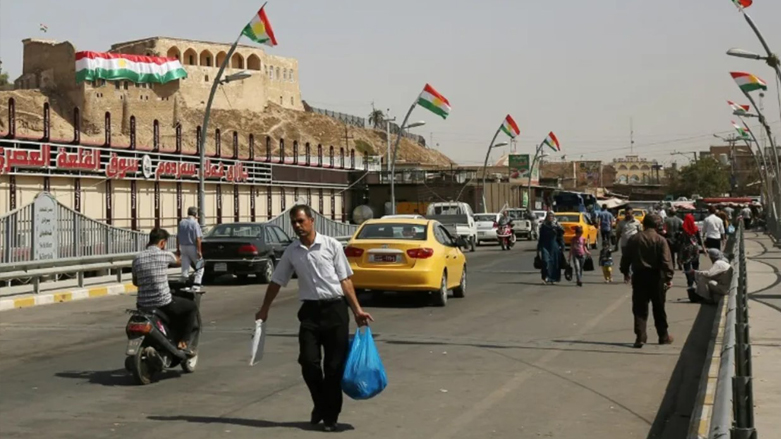Kirkuk’s acting governor decides to deprive Kurds of their residency and ration cards
The Kurdish official indicated that a "strong stance" must be taken against anyone trying to undermine social cohesion and coexistence in Kirkuk.

ERBIL (Kurdistan 24) - The acting governor of Kirkuk, Rakan al-Jubouri, issued a decision on Sunday threatening to deprive the Kurds, especially displaced people of their residential cards" in the province.
In a letter dated July 3, Al-Jubouri called for the advanced headquarters of the Joint Operations Command in Kirkuk to "carry out a comprehensive campaign to all Kurdish citizen’s houses to check their ration cards and compare them with their permanent residency situation throughout Kirkuk.
The letter indicated that this step was taken as a prelude to canceling any residency card and ration card for the Kurds who do not reside in Kirkuk.
Al-Jubouri claimed that this action came "due to the requirements of the public interest and security reasons" and said that the campaign would be handled by committees from the security forces and relevant departments.
Like other decisions by al-Jubouri, this move entails significant risks, as thousands of Kurdish families left the city following the events of October 16, 2017, when the Iraqi army and the Iran-backed popular mobilization forces (PMF) tightened their control over the city of Kirkuk by using force.
Kurdish officials say that implementing the decision will contribute to reducing the number of Kurds in favor of Arabs brought to Kirkuk from various regions of Iraq after 2017.
The head of the Kurdistan Region’s disputed areas board, Fahmi Burhan, strongly condemned al-Jubouri's decision, describing it as a "chauvinistic decision" that violates coexistence, the law, and the constitution.
In a statement, Burhan said that "this decision is not acceptable; It is not possible to remain silent about it, and all civil society organizations must act against it."
The Kurdish official indicated that a "strong stance" must be taken against anyone trying to undermine social cohesion and coexistence in Kirkuk.
Kirkuk, inhabited by a mixture of Kurds, Arabs, Turkmen, and Christians, is a core focus of the differences between Erbil and Baghdad as one of the most important disputed areas.
According to Article 140 of the Iraqi constitution, approved in 2005, the future of Kirkuk, and the other disputed areas, were supposed to be determined in three stages, starting with normalization and then census, to be followed by a local referendum on whether to be part of Iraq or the Kurdistan Region. However, article 140 was not implemented due to political differences.
Edited by NA
